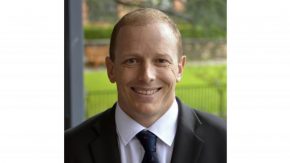PYP – More FAQs about the PYP
Your son is at a school that offers the Primary Years Programme. This will enable him to experience personal growth as he models the skills, attitudes and profile that we want the students to develop. He is on the road to becoming a World Citizen. In this edition we continue to unpack the Primary Years Programme.
What are the essentials of the Primary Years Programme?
The Primary Years Programme presents a plan for high quality education and provides a curriculum framework of essential elements. These elements are:
The Acquisition of Knowledge:
The PYP has identified themes, or areas of knowledge, which are used to organise the 6 Units of Inquiry, taught from Kindergarten to Year 6. These Units of Inquiry provide the framework for a wide variety of resources to be explored. Six board themes are explored in each class. These are:
Who We Are
Where We Are in Place and Time
How We Express Ourselves
How the World Works
How We Organize Ourselves
Sharing the Planet
The Understanding of Concepts:
There are 8 fundamental concepts expressed as key questions, to propel the process of inquiry. These universal concepts drive the units of inquiry but they also have relevance within and across all subject areas (transdisciplinary). The 8 fundamental concepts are:
Form: What is it like?
Function: How does it work?
Causation: Why is it like it is?
Change: How is it changing?
Connection: How is it connected to other things?
Perspective: What are the points of view?
Reflection: How do we know?
Responsibility: What is our responsibility?
The Mastering of Skills:
There are 5 sets of skills known as Approaches to Learning acquired in the process of inquiry. They are:
Thinking Skills
Research Skills
Social Skills
Communication Skills
Self-management Skills
The Development of Attitudes:
The PYP promotes attitudes that we want our students to feel, value, and demonstrate.
The Decision to take Responsible Action:
Our students are encouraged to reflect, to make informed choices and to take action that will help their peers, school staff, and the wider community. This is how our students demonstrate a deeper sense of learning, by applying their knowledge to service and positive action.
We work with these five elements to construct a rigorous and challenging curriculum that is engaging and relevant to our world and the students.
What is a unit of inquiry?
A unit of inquiry usually lasts 6 weeks and it is the aim of each class to cover all 6 trans disciplinary themes (Knowledge) over the year. The unit explores concepts and students will be guided into understanding and investigating a main understanding through lines of inquiry and teacher questions. Parts of a unit are the central idea, lines of inquiry, teacher questions and provocations for thinking, assessments, student inquiries and action and extensive reflections by teachers and students on learning.
How do you know what units are done over the years?
The Programme of Inquiry (POI) shows all the units of inquiry that each class will cover during the year. It is designed to enable teachers to guide students through the five essential elements of learning. All teachers plan together to produce the Programme of Inquiry which is reviewed at the end of each year. Each class has six units which are planned following the organising transdisciplinary themes.
Why does the PYP say that knowledge is only part of it?
The PYP is all about developing and educating the whole child. Knowledge is important but knowledge is nothing if you can’t apply it. The PYP is focusing on specific skills and attitudes that students need to develop to achieve the student profile.
“Educating the mind without educating the heart is not education at all.” Aristotle
Sue Gough – PYP Co-ordinator






